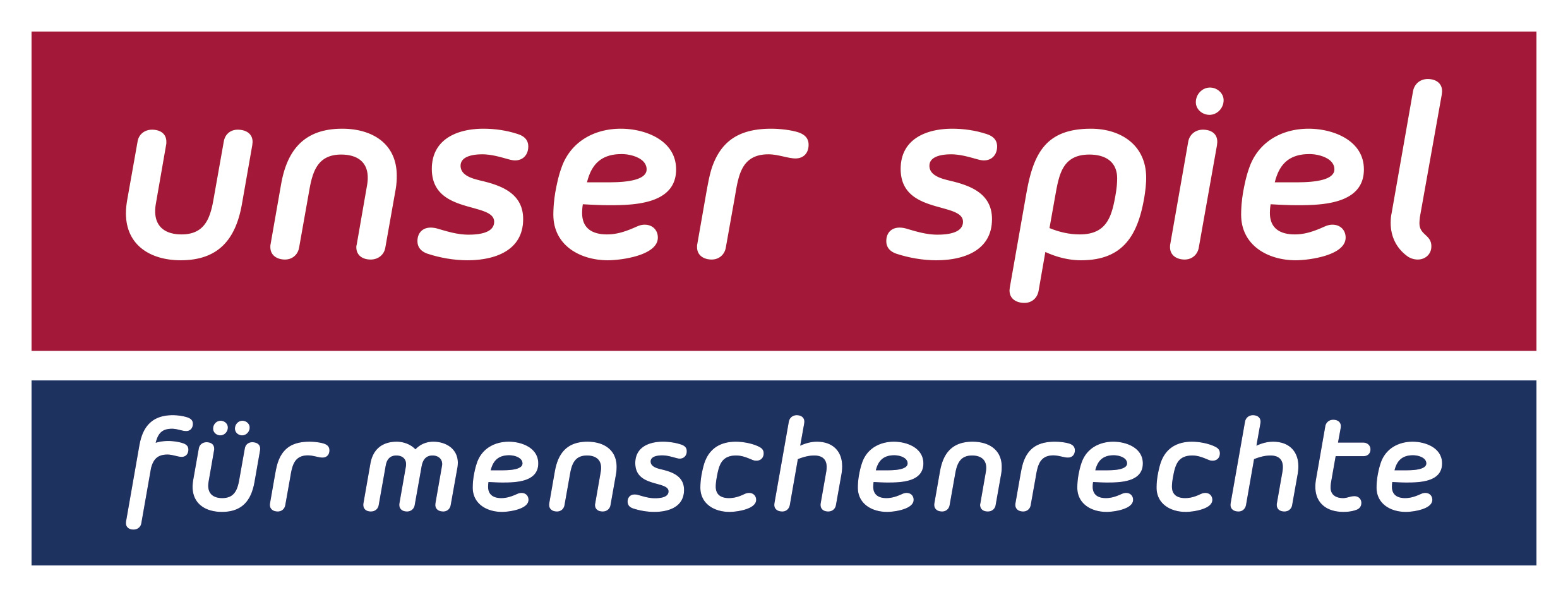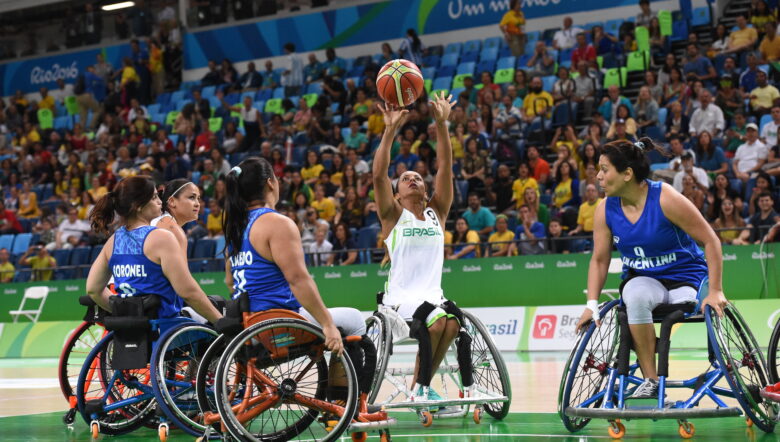A commentary by Hanna Stepanik
At the end of this week, from July 26, the 2024 Summer Olympics will take place for the third time in the French capital Paris. Over a period of a little more than two weeks, athletes from 206 nations will compete against each other in 32 sports.
The motto for Paris 2024 is “Games wide open” (“Ouvrons grand les Jeux”). The slogan is intended to show that these Games will be more inclusive, more open and more equal. The organizers have also placed human rights and sustainability high on their agenda. What can we really expect from this mega spectacle and what about the implementation of human rights and sustainability standards?
Qatar 2022: A turning point?
The controversial Men’s World Cup, which ended in Qatar in December 2022, brought the connection between sport and human rights to the attention of the wider public for the first time. Through campaign work and various activities, the “Our Game for Human Rights” project, coordinated by the fairplay initiative in 2022, focused primarily on the controversial FIFA World Cup and various human rights violations.
This summer, apart from the UEFA EURO 2024, which took place in Germany from June 14 to July 14, 2024, we are turning our attention to Paris. The Summer Olympic and Paralympic Games, aside from soccer mega-events, are the sporting events with the biggest media presence. Because if we want the legacy of the 2022 FIFA World Cup in Qatar to be a turning point in the way we report on the intersection of sport and politics, it is crucial that we continue to reflect on and report on these issues at the next World Cup and other future global sporting events in democratic countries. In short, it is crucial that journalists or even human rights organizations apply the same critical perspective they have applied to Qatar to other host countries of major sporting events.
At the same time, future major sporting events can certainly serve as role models and provide inspiration for subsequent events with their commitment and the implementation of human rights and sustainability strategies from theory to practice.
The Olympic Games offer a platform for athletes from all over the world to showcase their skills. They should be a symbol of peace, fairness and respect, both in sporting competition and in dealing with human rights. For example, Paris 2024 boasts that for the first time in the history of the Games, there will be as many male* athletes as female* athletes taking part.
Ambitious goals: Sustainability and environmental protection
The Paris 2024 Games have also set themselves the goal of being more sustainable and environmentally friendly than ever before. According to official information, the organizers are committed to minimizing the environmental impact of the Games, for example by relying on renewable energy, reducing waste and promoting environmentally friendly means of transport. The Games should also help to raise awareness of environmental protection and sustainability. Through measures such as recycling, water conservation and CO2 reduction, the aim is for the 2024 Olympic Games to make a positive contribution to environmental protection and serve as a model for future mega events.
A few weeks before the opening ceremony of Paris 2024, a number of critical voices were already being raised in the areas of human rights and sustainability.
Similar to previous major sporting events, the working conditions – especially of migrant workers – and the mass displacement of homeless people are being criticized. However, the open demand by organizations such as Amnesty International and the Sports & Rights Alliance for the International Olympic Committee (IOC) to take a clear stance against the racist discrimination of female* athletes wearing headscarves is also shaking up the proclaimed “gender equality” of Paris 2024, as is the exclusion of US trans athlete Lia Thomas. Amnesty International and various media also pointed out that the announcement that the 2024 Olympic Games would be made safer through AI-based video surveillance violates the right to privacy and could also result in violations of the rights to freedom of expression and peaceful assembly.
In terms of sustainability and environmental issues, the decision to hold the surfing competitions in Tahiti has made headlines in recent weeks and months due to the negative impact on local coral reefs, while an open letter from Ecoathletes against Toyota’s sponsorship of the Games is less well known.
Over the next few weeks, we – like many other sports enthusiasts, reporters and non-governmental organizations – will be keeping a special eye on the 2024 Olympic Games and share a number of high- and lowlights with you in terms of sporting achievements, but also human rights and sustainability! We are excited …!
Only a few months (or years) will tell to what extent the environmental protection measures, for example, or the ambitious goals in the area of gender equality will really bear fruit in the long term.
fairplay on site at the Paralympic Games
From August 28 to September 8, the 2024 Summer Paralympic Games will take place in Paris. As part of the “Our game for human rights” project, I will be there in person as project manager for fairplay and will keep you up-to-date on the sporting highlights as well as human rights and sustainability aspects!

